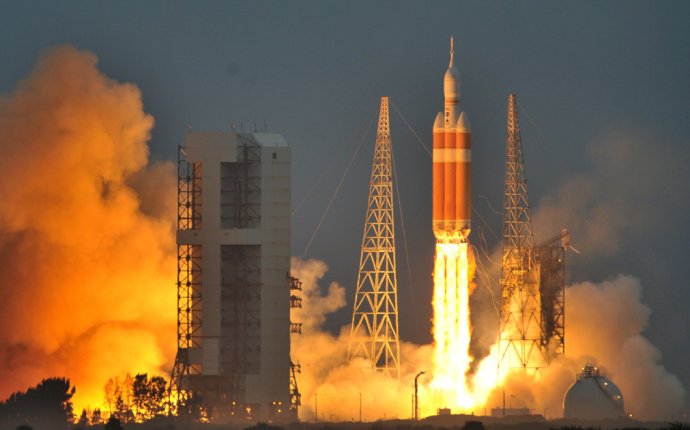
Should space exploration be Funded
The United States government is in huge debt and is adding to that every year with the deficit, which has prompted many to push for a more balanced budget. This raises the question: should revenue be increased or spending reduced? It seems that the answer is a little bit of both. Surely, this has its advantages and drawbacks, and it is very important to consider where these cuts have been made. Most of the reduced spending has come from programmatic cuts [1]. This means that funding for different government programs has been reevaluated and many programs have experienced a decrease in support. The National Aeronautics and Space Administration, NASA, is one of the programs that the government has decided it cannot continue to finance at its current rates, and the money being put into NASA has been cut back. This is definitely not a smart place to make spending cuts and, at least for the near future, this trend of lessened government support needs to be reversed. By using budget cuts as a possible solution to the massive deficit, many important programs have seen huge chunks cut out of their funds, and NASA is one of those programs. NASA’s budget continues to be reduced from almost $18.5 billion in 2011 to $17.8 billion in 2012, with potentially increased cuts in 2013 [2]. Evidently, the United States government does not think that NASA is worth more than about 0.4% of the federal budget. In light of these recent cuts, world-renowned physicist Michio Kaku has said:
Back in 2004, President George W. Bush laid out an ambition plan. The space shuttle was to be phased out this year, and five years later the replacement for the space shuttle (the Ares system) would be fully functional and operational. Then, by 2020, the plan was to establish a permanent human presence on the moon, and after that maybe even the planet Mars. Forget about it – everything is out the window! [3]
The government has decided to slash funding for many of NASA’s projects in an attempt to cut back on the deficit and ultimately boost the economy. They claim they need every penny they can get in these rough times. The economy is doing poorly, and government money is better spent elsewhere, and apparently they feel that government money would be better spent outside of programs like NASA. However, there are many sources that directly counter this opinion, claiming that NASA is an investment to stimulate the economy, and not just money being “shot into space”. The cost of NASA, as is true of almost any government agency, is worth it, because it can benefit the economy directly through the purchase of goods and creation of jobs, and indirectly by inspiring people in industries that spawn from invented technologies or materials. Many companies have gone on to be very successful private businesses after working with materials invented by NASA. The Tempur-Pedic mattress company got its start when NASA scientists wanted to provide comfortable seating for pilots that needed to remain in one position for a long time. Umqua is a water purification company that began with NASA, and has continued to be successful in the private marketplace [4]. There are many cases like these in which niches have been created for companies due to progress made at NASA.
Cutting spending to NASA also harms the economy because it cuts jobs. The recent retiring of the space shuttle has been estimated to have cut over 4, 600 jobs [5]. Indeed, many attempts have been made to directly measure the affect NASA has had on the economy, but ultimately none have been very successful in finding a conclusive answer. Undoubtedly, NASA’s promotion has obvious benefits, such as the improvements it makes to the telecommunications industry, but it is very difficult and costly to distinguish what effects NASA has had on any part of the economy, and much more difficult to determine its effects on the economy as a whole [4]. However, some “estimated ratios of revenue generated compared to spending have been as high as 14-to-1” [5] for NASA. This indicates a very high return on the money spent by the government on NASA, but many dismiss these ratios as very generous. There have been more conservative results that are closer to 3-to-1 or 2-to-1 [5]. Even if these conservative estimates can be believed, it still means that NASA ultimately provides more money to the economy than the government spends on it. Other estimates have been made, and the conclusion has been widely drawn that based on “the mission success of the life sciences effort and ample evidence of other social benefits… it can be concluded that NASA Life Sciences investments have more than ‘paid for themselves'” [5]. While all of the studies don’t agree on the exact numbers, all of these studies do agree that NASA is a generally good investment for the US government. Therefore, the argument that NASA funding should be cut because of the tough economy is not one that can be supported with any substantial evidence.











